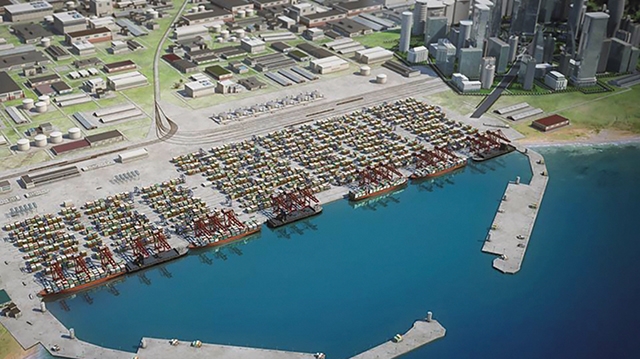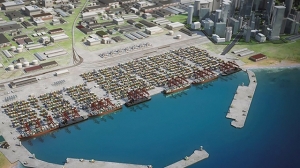Internal Georgia & the Fate of Anaklia Port in 2020
Beyond the large geopolitical trends evolving in Eurasia, the fate of the Anaklia port project will also depend on Georgia’s internal politics as the country enters 2020 with parliamentary elections looming.
Let’s start with some destabilizing factors from inside Georgia and then move on to the larger troubles engulfing the Anaklia project. In October, it was announced that Conti International and Meridian Capital Limited’s decision to quit the ADC followed on from almost a year of troubles in the port project. There have also been occasional announcements about the possible expansion of other Georgian Black Sea ports. To Anaklia’s south, in Poti, a decision on whether to construct a multimodal transit terminal is being discussed. Wondernet Express, the international logistics company behind the project, reportedly plans to invest $20mln to expand the storage capacity of fertilizers up to 60,000 tons. International port operator APM Terminals, along with Poti New Terminals Consortium, have also submitted a conceptual design for the expansion of APM Terminals’ Poti Sea Port. Meanwhile, the US Overseas Private Investment Corporation (OPIC) issued a loan of $50mn to Pace Group to develop the planned multi-functional marine terminal at Poti.
Moving even further south, in another Georgian port, Batumi, construction of an additional terminal was also announced.
On a regional level, it was recently reported that Russia, through the RMP (RosMorPort) Taman Consortium, is set to build the ‘Taman Port,’ which is located on the Russian side of the strategically important Kerch Strait that connects the Black and Azov seas.
There are also negative trends on the global stage. Over the past year, the Anaklia port acquired a geopolitical dimension. Russia has been quietly watching developments around Anaklia. However, it is in Moscow’s interest either to be part of the Anaklia project or have it postponed as the country has its own plans for the development of a new deep sea port (Taman) and the preservation of an old one (Novorossyisk).
Then there are China and the US. Both have specific interests in the project. Beijing sent its Foreign Minister to Georgia (for the first time in 23 years) in May 2019, just at the time of the worst Anaklia troubles, signaling rising Chinese interest in participating in the project.
The US, on the contrary, has been quite open in its views and general support for the project. For example, on October 26, Elizabeth Rudd, acting US Ambassador to Georgia, said that “the United States still considers the Anaklia port as a very important project for Georgia. We are very hopeful that it will be implemented, especially with the American investment”.
This comes in line with what other American politicians stated earlier. In June, the US foreign secretary Mike Pompeo told the Georgian government that the “the project and others will enhance Georgia’s relationship with free economies and prevent Georgia from falling prey to Russian or Chinese economic influence. Those pretend friends do not have Georgia’s best interests at heart.”
Such statements, though not implemented on the ground, nevertheless show that there are growing signs of Anaklia being drawn into the unfolding geopolitical competition across Eurasia between the US and China. Control over ports and roads is of vital importance and there are increasing indications in various US statements that Washington wants to deny the Chinese the use of Anaklia because of its likely inclusion within the Beijing’s trillion-dollar ‘Belt and Road Initiative’, which aims to connect China with Europe’s almost 500-miliion people market.
As Georgia nears the elections and the situation inside the country heats up, major parties will use the failure to build the Anaklia port against each other. Undoubtedly, this will complicate the investment climate in the country and negatively affect the Anaklia project. However, one could also argue that despite internal problems, wider geopolitical imperatives, namely, US and Chinese interests to have the port constructed, will keep the Anaklia project floating for some time – at least throughout 2020.
By Emil Avdaliani
Image source: emerging-europe.com











